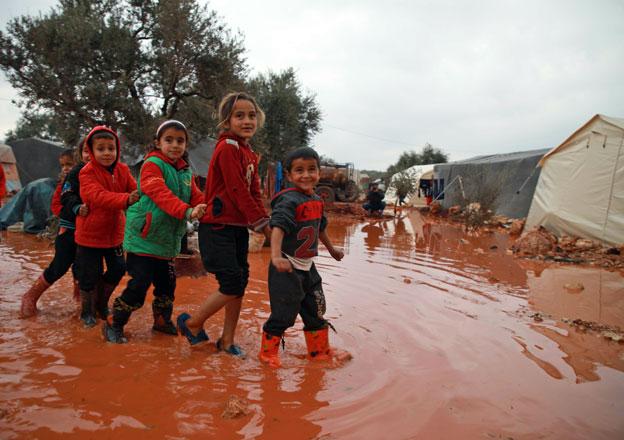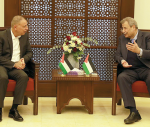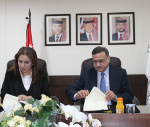You are here
Fear in Iraq's Mosul as Daesh families return from Syria
By AFP - May 29,2021 - Last updated at May 29,2021
MOSUL, Iraq — The return of dozens of Iraqi families suspected of links to the Daesh terror group from Syria to Mosul has sparked fears among residents who survived the horrors of the extremist organisation's rule.
Around 300 people from some 90 families left the Kurdish-run Al Hol camp in northeast Syria on Tuesday under Iraqi army escort, a Kurdish administration official told AFP on condition of anonymity.
It was the first repatriation of Iraqi families from the camp, which is home to more than 60,000 people including relatives of Daesh fighters, and came as part of an agreement between Baghdad and the multinational coalition battling the fighters.
But the move has stirred up nightmares for many Mosul residents.
For three years, Mosul was the heart of Daesh's self-proclaimed "caliphate".
Daesh fighters imposed a strict interpretation of Muslim "sharia" law, banning music and smoking and meting out brutal punishments, including public beheadings, for those who violated their rules.
"We are totally opposed to their return", said Omar, a 28-year-old soldier, whose father was killed by Daesh fighter.
Iraq formally declared victory against Daesh in late 2017, a few months after ousting the extremists from Mosul, the capital of Nineveh province.
The Syrian Kurdish administration official said the departures marked a “first wave” of Iraqi families to leave Al Hol.
The families were sent towards Qayyarah, an area south of Mosul that is home to the Al-Jadaa camp.
That camp hosts almost 7,500 displaced people and families of extremists in two separate areas, the Iraqi ministry for the displaced says.
“How can we accept their return while many people are still grieving for at least one member of their family who disappeared after being arrested by Daesh and whose body has never been found?” said Omar.
Syria’s Kurds have repeatedly urged the international community to repatriate foreign nationals held in the country’s northeast, but the calls have largely fallen on deaf ears.
Iraqis make up nearly half of Al Hol’s inhabitants, according to the United Nations.
“It is the state’s duty to receive repatriated Iraqis and settle them in existing camps before integrating them into their regions of origin,” said Evan Gabro, minister for migration and the displaced.
Qayyarah district administrative director Salah Hasan Al Jubburi sought to reassure residents.
The families “do not represent a security danger, though I understand popular opposition since they come from Al Hol”, Jubburi said.
‘Extremist ideas’
He said most of the arrivals were women and children, and almost all were originally from neighbouring Anbar province, also a former extremist bastion.
“There are just four or five families that are originally from Nineveh,” Jubburi said.
Ali Al Bayati, member of Iraqi’s human rights commission, said the residents’ fears stemmed from a “lack of transparency”.
“Nobody knows if these people have been interrogated or if they were subject to an investigation,” he said.
“Before accepting them, [the authorities] should have ensured that none of them were charged or had committed crimes.”
Omar Al Husseini, a human rights activist from Mosul, expressed scepticism.
“The government must be cautious” because the families have spent years in the Al Hol camp under the influence of extremists, he said.
“Is the state able to integrate them and above all, protect society?”
More than three years after Iraq declared Daesh defeated, nearly 1.3 million people remain internally displaced, one-fifth of them in camps, according to the UN.
Iraqi authorities have accelerated the closure of camps in recent months, but the International Organisation for Migration says many residents are unable to return home as they are often accused of links to Daesh.
For Omar the soldier, life with the returnees will be “impossible”.
“They have kept their extremist ideas,” he said.
Related Articles
QAYYARAH, Iraq — Extremist leaders are fleeing Mosul, a top US general in the coalition battling the Daesh terror group said Wednesday as Ir
BEIRUT — Three Iraqi nationals, including a woman, were killed in violence inside the northeastern Syrian camp of Al Hol that houses relativ
QAMISHLI, Syria — Around 200 Syrian displaced people, mostly women and children, were heading home from an overcrowded desert camp in the no
















